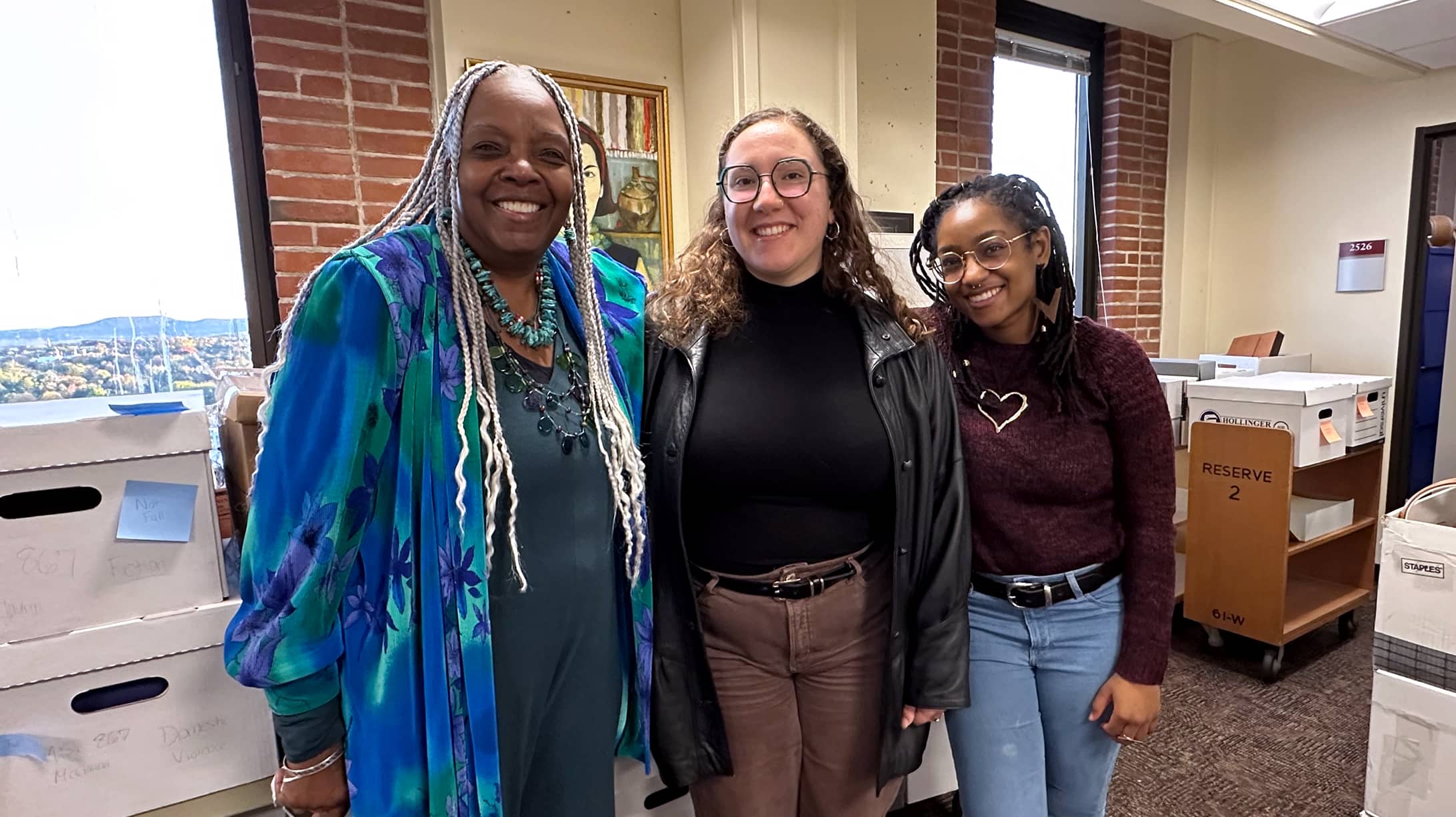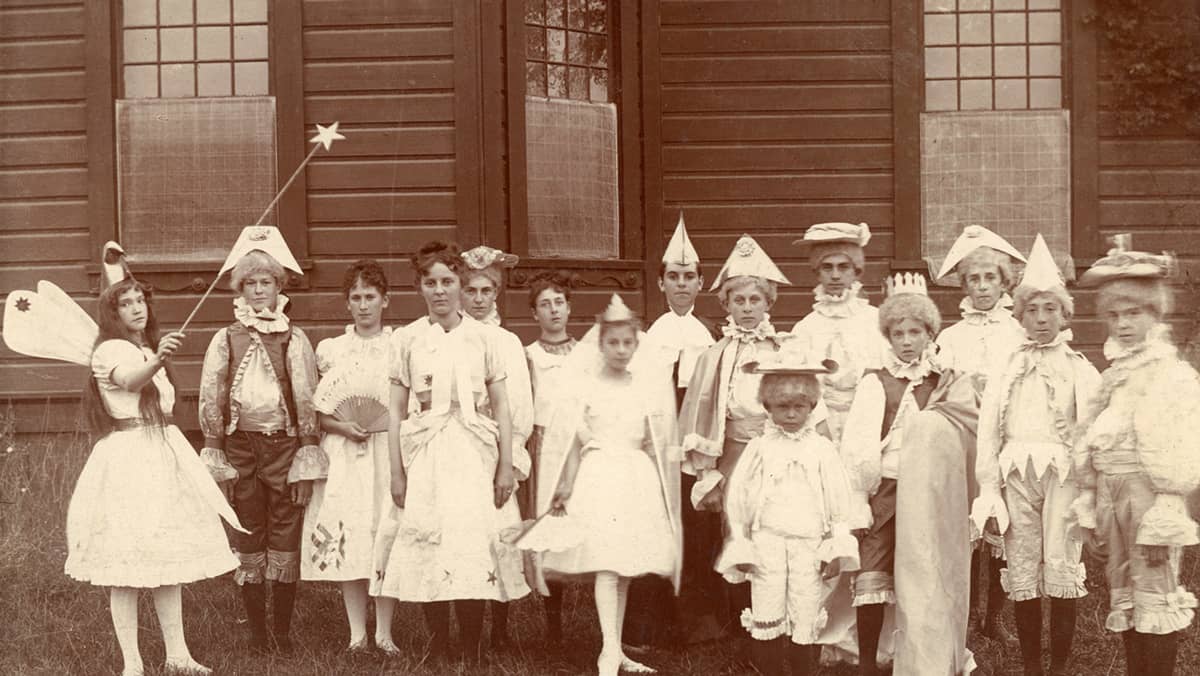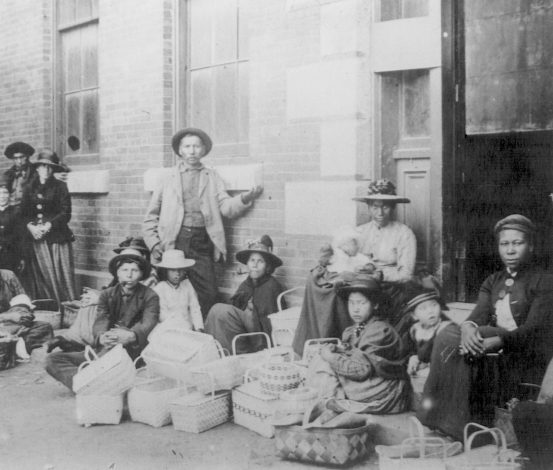UMass Students Preserve, Amplify Black Women’s Stories
Graduate students working in the Irma McClaurin Black Feminist Archive gain more than archival experience through their work—they learn to give voices to those history overlooks.
When an email went out to students in the UMass Amherst W. E. B. Du Bois Department of Afro-American Studies about an opportunity to work with the Irma McClaurin Black Feminist Archive, doctoral student Kara Ireland was immediately drawn to the project.
“I literally dropped everything and applied for it as soon as possible,” she says.
Originally established in 2016, the Irma McClaurin Black Feminist Archive (BFA) is an archival home for the work of BIPOC women, Black and nonwhite femme and gender non-conforming people, and allies of diverse gender and ancestry. Housed in the UMass Amherst Special Collections and University Archives within the University Libraries, the BFA also functions as a training center, where student interns provide support in processing the collections and making them available to researchers and the public as soon as possible.
Happily for Ireland, she was one of the small group of students selected, and she has spent the last year and a half immersed in the BFA. Ireland and fellow doctoral student Anaëlle Cama were assigned to the collection belonging to the BFA’s founder, Irma McClaurin ’76 MFA, ’89 MA, ’93 PhD, affectionately known as Dr. Irma.
The task was daunting: McClaurin’s collection consisted of more than 400 boxes, each containing hundreds of documents. They were filled with a wealth of materials, from photos, cards, and letters to party invitations and student critiques—mementos of McClaurin’s life as a Black feminist speaker, anthropologist, author, and educator.
“I don’t think she’s ever thrown anything away,” Ireland says. “It’s pretty glorious to see someone’s entire life unfold.”
Ireland focused on Dr. Irma’s administrative files while Cama was tasked with going through photos. As she sorted through decades of photographs, a common theme began to emerge.
“I noticed there were many unidentified people, most of which were Black women,” Cama says. “It made me realize their presence was erased. Starting [the work] like that was very insightful.”
Ireland and Cama worked to catalog McClaurin’s collection, organizing the materials by general context to tell the full, rich story of her life. It was also important to identify the women in the photos and include them in McClaurin’s story.
“The relationships with her friends and colleagues were special, intimate to see. These people are part of her story,” Ireland says. “We are preserving their stories as well.”
For Cama, who had prior archival experience in her home country of France, the months she spent working in the BFA offered not just an opportunity for learning, but for unlearning as well.
“I learned different ways to organize documents but also unlearned things I did in the archives back in France,” she explains. “[In the BFA] we learned to employ different methodologies to make sure we don’t reproduce patterns of making people invisible.”
Marisa Williams and Dominick Braswell, who are also doctoral students in the Department of Afro-American Studies, were assigned to the collection of Zelma “Zee” Edgell, a Belizean writer, women’s rights activist, journalist, and educator who taught in the U.S. at Kent State University and passed away in 2020.
Williams describes being overcome with emotion the first time she saw Edgell’s collection.
“I burst into tears. I don’t know what came over me,” she says. “There is something emotional about witnessing someone’s personal materials.”
Edgell’s collection includes diaries, lesson plans, and newspaper articles from her life and travels around the world. The collection also includes magazines and brochures of Belize, which Edgell used as inspiration for her writing.
“Her novels all take place in Belize,” Williams explains. “She had to base them off her memory and the materials she collected to write about the landscape and people of Belize.”
Braswell says the BFA is a reminder of the often-unknown accomplishments of Black women.
“It’s a reiteration of the silences and history and scholarship as it pertains to Black or African American women,” he says. “What’s beautiful about this archive is that it highlights lesser known or possibly forgotten Black women who’ve contributed to Black diasporic history. I’m grateful to be a part of this as a comrade.”
This was McClaurin’s very purpose in founding the BFA, Ireland says: to give voice to Black women.
“Black women are often underrecognized, undercelebrated,” Ireland says. “[Through the BFA], we are amplifying Black women’s stories and voices, even the mundane.”
You can support access to the work of BIPOC women and gender nonconforming academics and activists by contributing to the University Libraries and specifically the Irma McClaurin Black Feminist Archive Endowment.
- Grow Investment
- College of Humanities and Fine Arts
- University Libraries




